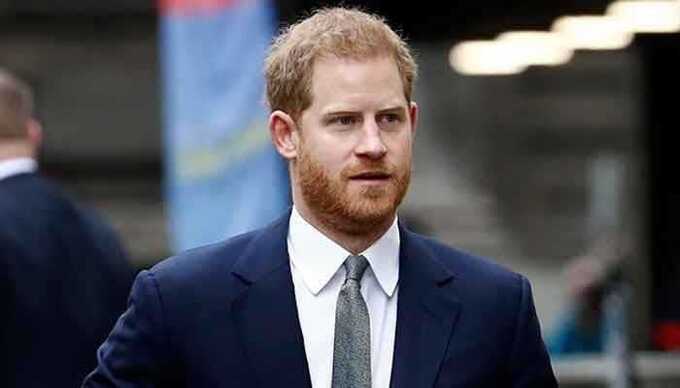Prince Harry’s legal battle for police protection has cost UK taxpayers more than £600,000

Prince Harry’s legal fight against the Home Office’s decision to downgrade his police protection in the UK has cost the government more than £600,000 to date.
The Duke of Sussex is pursuing a costly legal battle against the move to deny him automatic security, even if he pays for it himself.
The prince is contesting a February 2020 ruling that he will not be given the ‘same degree’ of publicly funded protection after he ceased being a full-time working member of the Royal Family and moved to the US.
He argues that he, his wife Meghan and their children Archie, five, and three-year-old Lilibet, are at risk on trips to his home country, including from ‘racism and extremism’.
One of the examples used by the military veteran’s legal team is a security incident in July 2021, when his car was chased by photographers as he left a charity event at Kew Gardens.
According to data released to Metro.co.uk under the Freedom of Information Act, the Home Office costs amount to £569,559 for an ongoing judicial review bid and £27,257 for a second, which has concluded.
This includes £359,075 for the government’s legal department, £225,941 for counsel and £170.28 in courier fees across the two cases.
Court fees amount to £2,310 and E-disclosure to £11,319 to date in the ongoing case.
The duke, 39, has said his own private security team does not have adequate jurisdiction abroad, which would include access to local intelligence and operating under the legal law enforcement framework.
In February, his attempt to overturn the decision by the Executive Committee for the Protection of Royalty and Public Figures (Ravec), which is managed by and includes the Home Office, was dismissed.
High Court judge Sir Peter Lane found that the applicant had ‘comprehensively lost’ the bid for a judicial review, and that the committee had been neither irrational nor procedurally unfair.
Judge Justice Lane also found that the prince’s offer to pay for the security was irrelevant, as the decision revolved around a person being either entitled to state provided protection or not.
Three months later, the ‘principal’ was given the go-ahead to challenge Sir Peter’s refusal at the Court of Appeal.
Lord Justice Bean found that there is a ‘real prospect of success’ in one of five grounds given by the prince in his bid to contest the ruling, namely the argument that Ravec failed to follow its written policy.
The legal battles followed the duke and duchess stepping back from royal duties at the start of 2020, when they relocated to Montecito in California.
The Sussexes have privately funded security but the prince has argued during his challenge that the ‘case by case’ protection offered in the UK is ‘unreasonable’ because it creates ‘excessive uncertainty’ for his protection team. He is obliged to give 28 days’ notice before a visit.
In May, the prince was reported by The Daily Telegraph to have turned down an invitation from his father to stay at Buckingham Palace because of security concerns.
However, the couple have made a number of high profile trips around the world since the palace split, including to Nigeria in May and Colombia earlier this month.
The duke’s own legal bill is reportedly running at more than £1 million with the litigation leaving open the wranglings of who pays costs once the case is finally concluded.
His legal team has said previously: ‘The Duke and Duchess of Sussex personally fund a private security team for their family, yet that security cannot replicate the necessary police protection needed whilst in the UK.
‘In the absence of such protection, Prince Harry and his family are unable to return to his home. The Duke first offered to pay personally for UK police protection for himself and his family in January of 2020 at Sandringham.
‘That offer was dismissed. He remains willing to cover the cost of security, so as not to impose on the British taxpayer.
‘As is widely known, others who have left public office and have an inherent threat risk receive police protection at no cost to them.
‘The goal for Prince Harry has been simple – to ensure the safety of himself and his family while in the UK so his children can know his home country.’
Ravec is responsible for decisions on protective security for the royal family and key public figures.
Consisting of the Home Office, Metropolitan Police and Royal Household, the committee advises an independent chair in decision-making.
A government spokesperson said: ‘The UK government’s protective security system is rigorous and proportionate.
‘It is our long-standing policy not to provide detailed information on those arrangements, as doing so could compromise their integrity and affect individuals’ security.
‘It would not be appropriate to comment on ongoing legal proceedings.’
Read more similar news:
Comments:
comments powered by Disqus
































